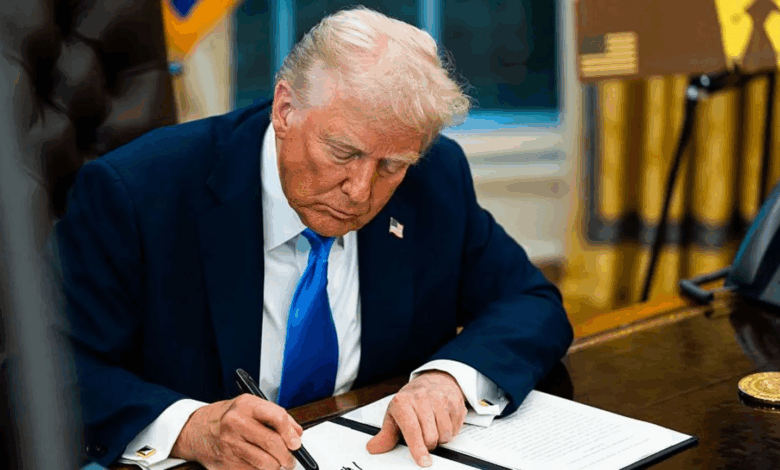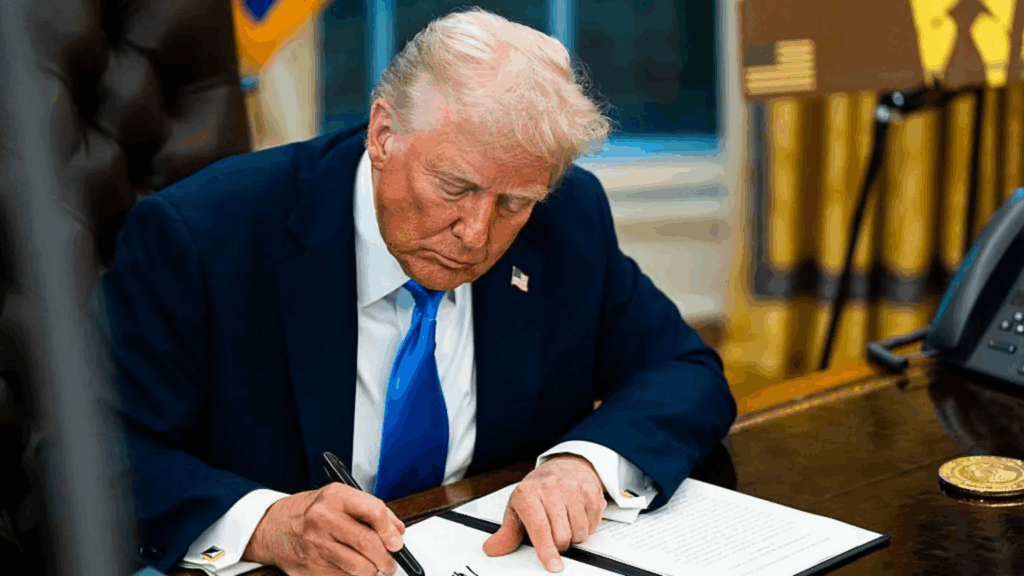Trump administration sued over $100K fee for skilled worker visas


The US Chamber of Commerce has filed a lawsuit against the Trump administration’s new $100,000 (£74,000) fee on H-1B visas for skilled foreign workers.
The fee “will make it cost-prohibitive” for US employers to use the programme, said Neil Bradley, Chief Policy Officer at the pro-business group.
Trump signed an executive order last month instituting the fee, arguing the visa programme has been abused. Critics have said it undercuts the American workforce. It is used heavily by the US tech sector, both by major companies and small startups.
The White House responded to the suit by calling the fee lawful and a “necessary, initial, incremental step towards necessary reforms” to the programme.
Mr Trump’s order only applies to new visa requests in the programme and vows to restrict entry unless a payment was made.
The move drew the ire of tech executives, including billionaire Elon Musk, who have argued that the H-1B programme enables the US to attract top talent from around the world.
Mr Musk, Microsoft’s Satya Nadella, and Sundar Pichai, the CEO of Google-parent Alphabet, are among the executives who began their careers in the US on H-1B visas.
Mr Trump also set up a new “gold card” to fast-track visas for certain immigrants in exchange for fees starting at £1m.
The Chamber of Commerce argued in its complaint Tuesday that if implemented, “the fee would inflict significant harm on American businesses,” forcing them to either dramatically increase their labour costs or hire fewer highly skilled employees.”
But in a press release, the Chamber, which represents more than 3 million businesses, also praised Mr Trump for an agenda of “securing permanent pro-growth tax reforms, unleashing American energy, and unravelling the overregulation that has stifled growth.”
US Commerce Secretary Howard Lutnick argued in support of Trump’s order and said “all of the big companies” were on board with the fee.
“The company needs to decide… is the person valuable enough to have a $100,000-a-year payment to the government, or they should head home, and they should go hire an American,” Lutnick has said.
Many H1-B visas holders come to the United States from India and China.
Tech companies argue that workers brought into the US cannot readily be replaced by American workers.
But White House spokesperson Taylor Rogers said the administration’s action on H-1B visas discourages companies from “driving down American wages.”
DISCLAIMER: The Views, Comments, Opinions, Contributions and Statements made by Readers and Contributors on this platform do not necessarily represent the views or policy of Multimedia Group Limited.
DISCLAIMER: The Views, Comments, Opinions, Contributions and Statements made by Readers and Contributors on this platform do not necessarily represent the views or policy of Multimedia Group Limited.
Source link





